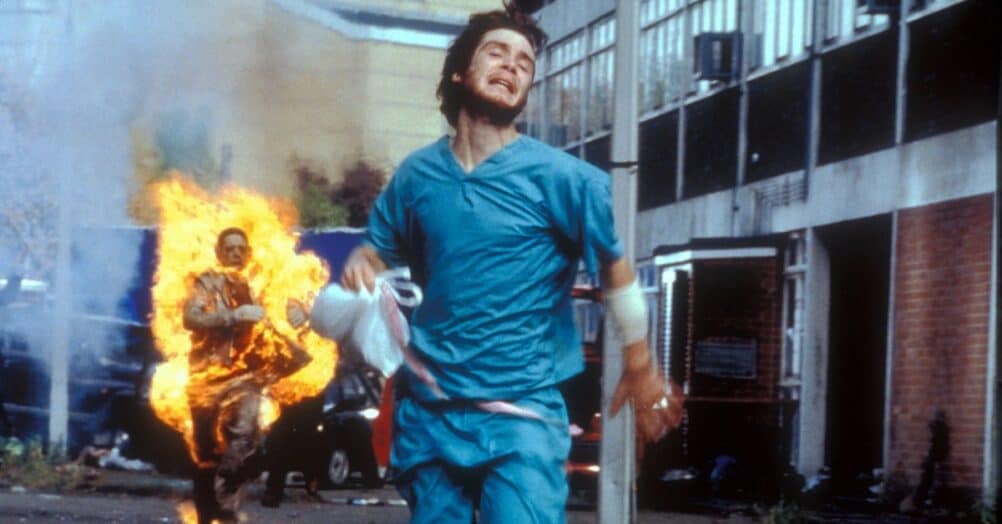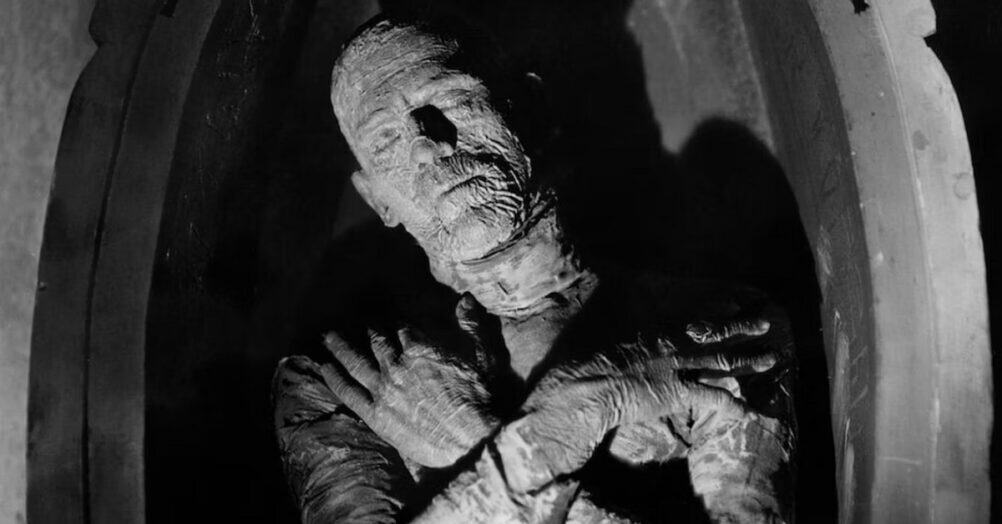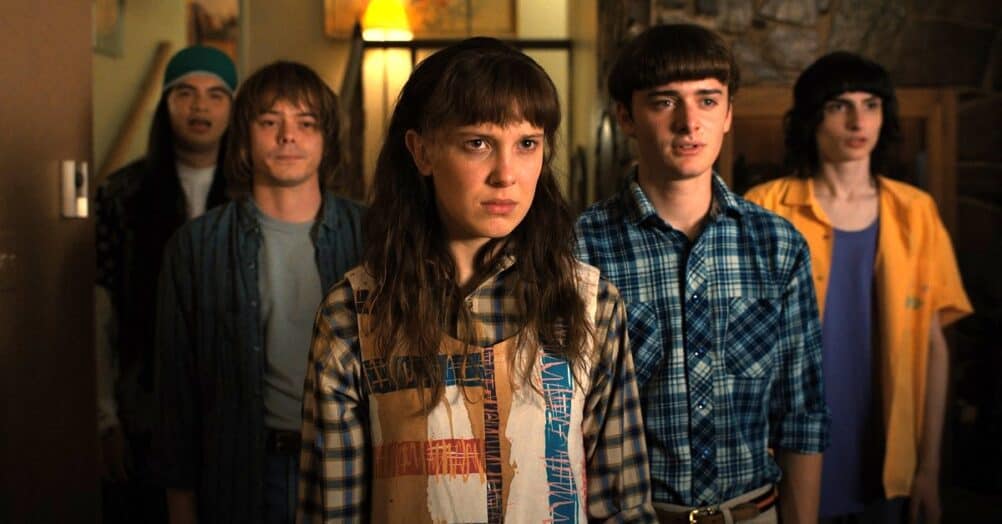Last Updated on May 22, 2024

Plot: Unspeakable horror meets the blackest of black comedy. To celebrate the birth of their baby, a bickering couple buys a coffee table. Guaranteed to bring happiness to their family by the smarmy salesman, the couple instead find nothing but horror with this furniture and all without ghosts, monsters or possessions, just a tacky coffee table.
Review: It is hard for movies to fall between the cracks for a movie site like ours. Rarely do we learn of a movie after everyone else, especially two years late. The Coffee Table, directed by Caye Casas, is a Spanish movie that debuted in 2022 in Europe before hitting the festival circuit in 2023. The movie snuck onto DVD and streaming platforms domestically in April but is now buzzing thanks to an endorsement on social media from Stephen King. Knowing nothing about the film besides King’s endorsement, I checked out The Coffee Table and was unprepared for what I was about to see. See is not quite the right word as you endure The Coffee Table. A pitch-black comedy about the most horrific possible subject, The Coffee Table may be the most uncomfortable film I have watched in years. Well written and acted, this movie is absolutely not for everyone, but it will leave you thinking about whether you like it or not.
The Coffee Table opens with new parents Jesús (David Pareja) and Maria (Estefania de los Santos) shopping for a coffee table. As the salesperson describes the titular object, the couple snipes at one another about their relationship. Jesús wants the garish table, which features two nude figures covered in fake gold and demands to be able to decide since Maria has been in control of everything from their home to the name of their newborn son, Cayetano. The couple reaches their breaking point when the salesperson claims the glass table is virtually unbreakable. Needless to say, Jesús ends up getting the table and brings it home to assemble it. The table becomes a focal point in the following horrific events. The moment that changes everything for Jesús comes within the first thirty minutes of The Coffee Table, and what follows may be the most anxiety-ridden hour of cinema ever put on screen.
Director Caye Casas set out to make this movie with the intention of making the audience suffer, and he absolutely succeeded in doing so. In many mainstream films, what happens here would have unfolded much differently. Instead of putting the horror on screen, Casas keeps things off-screen and focuses on David Pareja, who conveys multitudes on his pale and sweaty face without uttering much dialogue at all. There are echoes of Edgar Allan Poe throughout this story as everything is built around ramping the stress meter to the boiling point without ever allowing it to tip over. Every minute of this movie teeters on the precipice of a reveal that never comes and exponentially makes it harder to watch with each passing minute. With most of the film all set within Jesús and Maria’s apartment, there is a creeping feel of claustrophobia that gets more cramped as additional characters join the story.

At first, Jesús and Maria interact with characters on their own, including the salesperson at the beginning, followed by some patrons at a local market. Jesús also contends with a thirteen-year-old neighbor who has a crush on him and threatens him if he doesn’t tell Maria. Then there is Jesús’ brother and his girlfriend, who come over for dinner, which adds another dimension to the fraught day that begins with the couple arguing about the coffee table. As the characters talk about the baby and life as new parents, surreal, dreamlike moments haunt the screen and add to the lingering dread waiting to drop. There is also a great deal of humor as Caye Casas plays dangerously close to what is funny versus what is inappropriate to joke about. Somehow, The Coffee Table is as humorous as it is horrifying.
At a brisk ninety minutes, The Coffee Table does not belabor anything, but you will feel like you have spent twice as long watching these events unfold. The final ten minutes of the movie maybe some of the most gut-wrenching scenes of the year. Caye Casas does not shock us with what he shows on screen but rather with what he keeps off camera. Much of this film is a mature comedy of errors that relies on character and performance over anything else. That is especially true of David Pareja and Estefania de los Santos. Any new parents can relate to the disconnect these actors bring to Jesús and Maria but will likely be unable to contend with what happens to them after that. If this film had been about anything else, critics would be lauding it as a masterful and realistic glimpse into a relationship. Still, because this movie is etched in the horror genre, it does not get the same recognition.
Not a horror film in the traditional sense, The Coffee Table is a horror story nonetheless. Disturbingly funny and achingly realistic in its depiction of trauma and shock, Caye Casas has made a film that will likely take incredible fortitude for a lot of viewers to get through. Yes, there is a shocking moment in this movie that will be a make-it-or-break-it scene for viewers, but the stress that follows is even more challenging to deal with. The Coffee Table is a cruel exercise in storytelling that is brilliant in its simplicity. I cannot necessarily say I would recommend that you watch this movie, but if you do, don’t say that I did not warn you.

















Follow the JOBLO MOVIE NETWORK
Follow us on YOUTUBE
Follow ARROW IN THE HEAD
Follow AITH on YOUTUBE